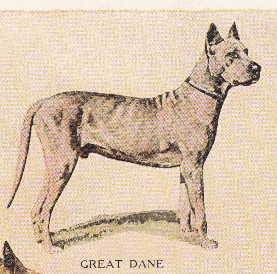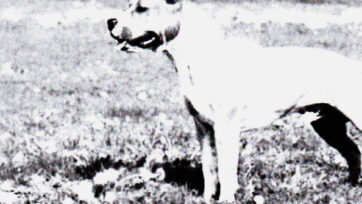
10 SIGNS OF CANINE KIDNEY DISEASE
KEEP REVIEWING THEM AND MAYBE YOU’LL SAVE YOUR DOG’S LIFE
An estimated 10% of older dogs will suffer kidney disease in their lifetime. There are a number of causes that may affect different age groups and have different consequences, resulting in chronic kidney disease ( which occurs more gradually ) or acute kidney injury ( occurring more suddenly ) will always have the same result, a sick dog.
REVIEW THESE BASIC SIGNS OF KIDNEY DISEASE IN DOGS
KEEP THIS LIST HANDY AT ALL TIMES
- Kidney filter damage ( glomerular disease ). The glomerulus of the kidney ( a kidney filtration mechanism ) is commonly involved in canine kidney disease. In the beginning. we expect no signs of illness, but since glomerular disease may be caused by infection ( like lyme disease ) or cancer, among other things, time can make the problems worse. Over time, inflammation, in the glomerulus of the kidney, damages the surrounding kidney tissues, creating chronic kidney disease that makes your dog feel sick.
- Infection of kidney tissues ( pyelonephritis ). Infection of kidney tissues with bacteria, or rarely, fungal organisms, is one of the kidney diseases that may have a more favorable outcome, so your veterinarian will be on the lookout for it. Our goal with pyelonephritis is to kill the bacteria that can cause damaging inflammation. This should limit the progression of any chronic kidney disease or assist with recovery from an acute kidney injury. A bacterial urine culture and susceptibility can verify the infection and identify which antibiotic might work the best.
- Kidney Stones ( nephrolithiasis ). Kidney stones can be the product of chronic bacterial infection, genetics or diseases that alter blood or urine characteristics. Nephro ( kidney ) liths ( stones ) don’t seem to cause dogs much pain, but this can change if they cause a blockage within the kidney or it’s collecting ducts; it can also change if they contribute to infection ( pyelonephritis ).
- Blockage in the kidneys ( ureteral obstruction with hydronephrosis ) or kidney stones can fragment and be carried along with urine into the ureter, the long narrow tube that connects each kidney to the urinary bladder. They are probably painful during their transit, but the bigger issue is the damage to the kidney if they become lodged there, causing a partial or complete blockage. New urine cannot exit the kidney easily and it backs up, causing the kidneys to swell. With enough pressure, the kidneys enlarge ( hydronephrosis ) and become damaged. If both ureters obstruct at the same time, it can cause horrible consequences.
- Damage to kidney tubules ( tubulointerstitial disease ). Inflammation and damage to the kidney tubules and supporting tissues commonly leads to chronic kidney disease. In many cases, there is no identified cause, and therefore there isn’t a specific treatment. This type of kidney disease can only be confirmed by microscopic examination of a kidney biopsy specimen, but biopsies are not usually recommended.
- Bacterial infection ( leptospirosis ). Bacterial infection with leptospires causes kidney disease and other organ challenges in dogs and people everywhere in the world. Normally, the effects of leptospirosis will be quite sudden and cause an acute kidney injury. Sometimes, the infection might cause chronic kidney disease. Quick recognition of this very treatable disease should lead to a better outcome and protect your dog’s friends and you from becoming infected by contact with urine or other body fluids.
- Your house could hold a deadly arsenal of products harmful to your dog and not just antifreeze. Ordinary table foods like grapes and raisins; certain commercial jerky treat products; common OTC medications like aspirin or other nonsteroidal ( NSAIDS ); or prescribed medications can all cause kidney disease. Venoms, pesticides, and heavy metals are less common toxins. We know dogs like to lick stuff, eat things, roll in all kinds of stuff, but that can put them at real risk. To reduce your dog’s risk of kidney injury, consider limiting his/her free-roaming habits, and refrain from giving him/her any medications without discussing it first with your veterinarian.
- Cancer, fortunately, kidney cancer is not very common in dogs. But unfortunately, treatment options for kidney cancer are rather limited. Solitary tumors affecting only one kidney can be removed by surgery with a good outcome if the cancer is benign or has not spread to other parts of the body ( including the other kidney ). Your dog only needs one good kidney to function normally. If the cancer is more widespread, as usually occurs with lymphosarcoma, surgery will not be an option for a cure. Microscopic analysis of a biopsy or small needle sample is needed for the correct diagnosis of cancer and appropriate treatment plans.
- Amyloidosis which is a protein issue will cause loss of function in certain organs, including the kidneys, because protein deposits replace the normal tissue. It is an uncommon consequence of chronic inflammation affecting other parts of the body. It may also be genetically programmed in some dog breeds. Amyloid deposits cannot be cleared away, and the functional kidney tissue that is lost cannot be replaced, so the prognosis is not good.
- Hereditary. There are genetic links to various kinds of kidney disease for many purebred dogs. Some young dogs fail to develop normal kidneys or have kidneys that are large and grape-like, with many fluid-filled cysts. These dogs show signs of kidney disease when they’re young. Other dogs with congenital problems of the glomerulus or with a predisposition to amyloidosis might only show signs or symptoms of kidney disease when they’re adults.
IN CONCLUSION
There are many ways that we can help our dogs and one is to constantly review this list. In many ways, your dog can clue you to a problem but not always so you must remain vigilant.
DO YOU KNOW JUST HOW THE KIDNEYS FUNCTION?
THE FOLLOWING IS THE BEST DESCRIPTION OF WHAT THE KIDNEYS DO
THOUGH THE FOLLOWING IS FOR A HUMAN KIDNEY, A DOG’S KIDNEY IS SO SIMILAR THAT THIS INFORMATION WILL STILL BE VALUABLE
HYGIENE OF THE KIDNEYS, AND THE PREVENTION OF RENAL DISEASE
The most rational hygiene of the kidneys for the prevention of kidney diseases consists in the avoidance of all those causes which are injurious to the kidneys. A great part of the poisonous products that are eliminated by the kidneys are introduced with the food and beverages, and it is important for us to bear in mind the fact that what we eat or drink must pass through our kidneys, and that the structure of these organs is delicate; that the most important secreting parts are composed of fine epithelium which can easily be desquamated by the passage of irritating products. Thus we note the appearance of hyaline casts after different kinds of spices and stimulating liquors, especially if taken in large quantities.
There are many members of the profession who attach no importance to the occasional appearance of a hyaline cast. But, considering the findings that such casts are formed by the degeneration of the tubular epithelium, we cannot take such a lenient view; for even if we find only one cast in two or three microscopic specimens, we must realize how many thousands of these there may be in a liter of urine. Thus every day thousands of these casts, and in a year enormous quantities may be lost. But as each cast means the loss of important secreting elements, there can be no doubt that, after a certain time, we shall have lost an important part of these most important organs, whose place is taken by connective tissue. Thus the development of interstitial nephritis can be hastened by faults in our alimentary regime. In cases where meat is taken abundantly, it is most probable that the continual excretion from the blood of nitrogenous end-products of metabolism means a serious overload for the kidneys and grave damage to their epithelium. And still more so if, owing to diminished activity of the liver due to senile degeneration, toxic products of higher toxicity than urea, and even uric acid, are passed.
We have observed the great frequency of albuminuria and casts in the urine of persons who were addicted for many years to a plentiful meat diet. According to Dr. James Tyson, who has been for many years making accurate observations on diseases of the kidneys, and who has published a standard work on them, interstitial nephritis can be produced after the prolonged ingestion of much meat. If we wish to keep our kidneys in the best condition, a lacto-vegetarian diet with only a little meat, once a day, is the most suitable. Still, more than meat, bouillon, and meat gravies should be avoided since they contain irritating meat extracts.
Milk diet in abundance is not only indicated in liver disease, but also in chronic kidney troubles. But when there are coexisting changes in the circulatory system, milk should not be given in large quantities, but in smaller amounts. Milk has also the great advantage of being a strong diuretic substance, especially in its acidulated forms ( yogurt or kefyr, or simple sour milk ); and at the same time, it irritates the kidneys very little since it contains only a minute amount of common salt.
We take decidedly too much salt every day, and in this way, we injure our kidneys considerably, and simultaneously it has been found diseased kidneys ( especially in acute or chronic parenchymatous inflammations ) are unable to eliminate sodium chloride properly, and its retention leads to edema. According to authorities, edema is caused by a retention of water and sodium chloride, the retention of the latter playing the primary role and the retention of the water is the primary factor.
For this reason, salt should only be taken in very small quantities. Alcohol should also be avoided, except in small quantities, as being very injurious to the kidneys; and considering that chronic nephritis may be caused by the immoderate use of alcohol, the chronic nephritis following large quantities of alcohol may be attributed to the fact that, according to research, the alcohol habit leads to an immoderate use of salt with its deleterious effects upon the kidneys.
Research has shown that rice gives very little work to the kidneys, as in twenty-four hours only 2 grams of alkaline salts are eliminated. On the other hand, potatoes cause a very great elimination of salt by the kidneys. So it seems that rice would be good food for patients with renal disease.
Not only alcohol but other stimulants, like tea, can be of harm to the kidneys if taken in large quantities like black tea. There probably would be little effect from black tea when taken in moderate quantities, though.
Irritating spices and adulterated sauces should be very carefully avoided; also all kinds of food that contain pungent ingredients. The passage of such poisonous substances for years through our kidneys must injure delicate structure and hasten the development of the senile kidneys with interstitial nephritis.
It is advisable to drink plenty of water, especially when a lot of meat or the above-mentioned sauces are eaten. by this means, we can flush out of the kidneys the end-products of protein food, and also other toxic substances. For the same reason, it is well to use certain mineral waters with diuretic properties. They should, however, not be taken at the same moment as substances irritating to the kidneys are taken, or the kidneys may be injured that acute hemorrhagic nephritis may ensue. There have been cases where even small quantities of chloride of potassium taken on an empty stomach, together with Wildungen waters, which have very diuretic properties, provided a condition of acute nephritis, with great quantities of blood clots, epithelial and granular casts, many epithelial cells, and red and white blood-corpuscles in the urine.
When taking various drugs, we must always remember that they must pass through our kidneys. The drug habit, especially when irritating drugs are taken, can have a ruinous effect on these vital organs and surely diminish our prospects for a long life. Day by day many of the epithelial cells will be desquamated, slowly but surely and inflammatory conditions of the kidneys will eventually appear. There is nothing in this world without a cause, and if a chronic parenchymatous or interstitial nephritis suddenly appears, it must have a pre-existing cause. It is the result of our continual neglect and abuse of these most important organs. The kidneys never forget the wrong they once have suffered. Indeed, most of the evil that befalls us in this world is our own fault, for doing things we should not do and committing those we should.
A frequent source of renal diseases is infectious diseases with the passage of toxic products through the kidneys. This source of kidney disease is often overlooked, the symptoms of acute nephritis being mistaken for or confused with those of the infectious disease. Acute nephritis after tonsillitis is often not diagnosed unless the symptoms are very obvious. In such cases, occasional casts and epithelial cells, with red and white blood-corpuscles, may remain for a long time in the urine, sometimes permanently, and therefore slowly and insidiously chronic nephritis develops.
Tonsillitis is often caused by the dropping upon the tonsils of mucous secretion from a post-nasal catarrh. This is commonly so in chronic rhinitis caused by adenoid vegetations. The best prevention of renal diseases in these cases is an operation on the vegetations and treatment of the rhinitis, rather than removal of the tonsils, which probably play a great role in the defense of the organism against infections. This is shown by the fact that they are inflamed in the early stages of many infectious diseases.
FROM A 1922 BOOK
OLD AGE DEFERRED
This book was written in 1922 when the technology that we have today didn’t exist. What was learned was from hands-on experience and trial and error and is still valid today. While this discussion of the function of the kidneys is concerning humans and many references would never be for dogs. Such as alcohol or sauces, what is to be taken from all this is how important the kidneys are. The kidneys are basically always under attack whether from the environment or in the foods we eat ( often the food dogs eat too! ). Knowing this we have no excuse but to treat the kidney’s as gold and not work them any harder than we have to, especially in dogs.

